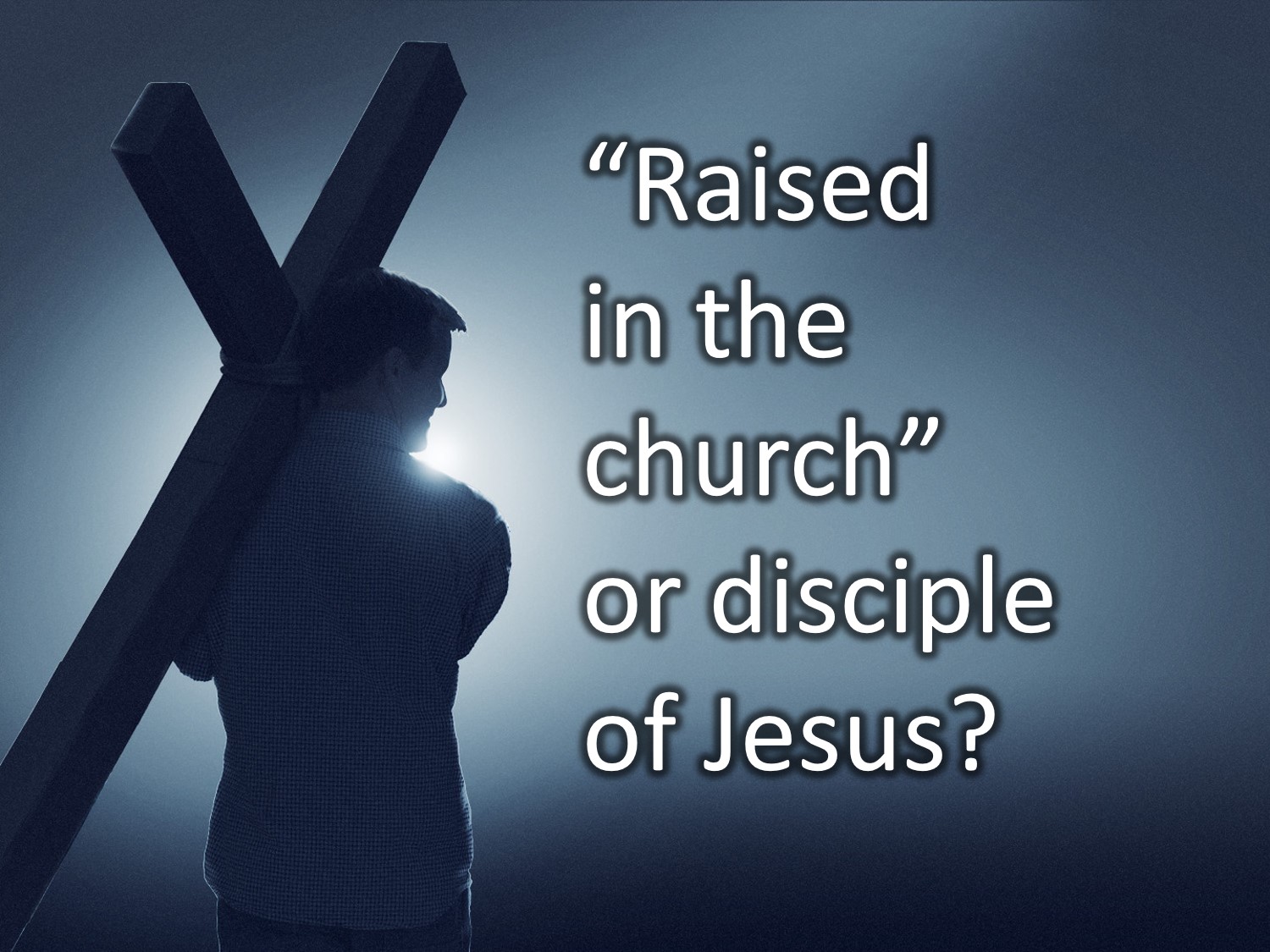Blog
M. W. Bassford
For God so Loved the World
Monday, February 10, 2020
John 3:16 is surely the most well-known verse in the Bible, with even Matthew 7:1 running a close second. Most Christians are aware that the world’s understanding of the latter is dramatically off-base, but I think that even when it comes to the former, we miss the point a little bit.
The problem is the word “so”. Typically, we read that as “so much”, as an expression of the intensity of God’s love. Thus, we come away from the verse with the idea that God’s sending of His Son reveals the depth of His love for us.
I think that’s true, but it’s not really what Jesus is saying. The usual meaning of houtō, the Greek adverb translated as “so”, is not “so much” but “in this way”. The first appearance of the word in the New Testament is Matthew 1:18, which begins, “Now the birth of Jesus Christ took place in this way.”
The KJV and all the translations that followed it weren’t wrong to translate houtō as “so”. In English, “so” can mean “in this way”. However, in the context of John 3:16, “so” introduces an ambiguity that usually is misunderstood.
Jesus, then, isn’t saying, “God loved the world so much that He sent Me.” He’s saying, “God loved the world by sending Me.” Of all the major translations, I think the CSB is alone in capturing the meaning here (“For God loved the world in this way. . .”).
This is a subtle distinction, but I think it reveals something significant about the love of God. This cornerstone verse of Christianity is telling us not that God loves us intensely (though He does), but that God loves us by acting.
When we are called upon to imitate the love of God, then, it is love expressed in action that we should be imitating. By contrast, much of the self-described Christian world gets hung up on feelings here: “I just love God so, so much!”
Well, that’s nice, I guess, but how is your love for God evident in the way you live? For that matter, how is your love for your brother and your neighbor evident in the way you live? There are an awful lot of folks out there who will shout their love for God to the rafters on Sunday morning then spend their week wallowing in selfishness and sin. That is not the way in which God loved the world!
Instead, love that is like the love of God always reveals itself in service and sacrifice. Maybe it comes from somebody who doesn’t get all teary-eyed during the Lord’s Supper every week, but every week, they’re out there tending to the needs of others. Love that meets our criteria for emotional intensity is neither here nor there. If you do get all teary-eyed during the Lord’s Supper, that’s fine too. What matters is love that manifests itself in a transformed life.
Honesty with God or Complaining?
Thursday, February 06, 2020
Over the past few years, one of my favorite hobbyhorses has been the need for honesty in our conversations with God. In our hymns and prayers, we shouldn’t pretend that things are hunky-dory when they aren’t. If we’re afraid, we should talk about that. If we’re angry, we should talk about that. As evidence, I cite Job, who was angry with God, yet did not sin with his lips, and the many psalms of lament.
After Bible class one day recently, one of the brethren at Jackson Heights approached me. He said, “You know how in 1 Corinthians 10, how Paul encourages the Corinthians not to complain like the Israelites did? What’s the difference between complaining and being honest with God?”
I paused. “That’s a good question,” I said.
“I thought it was,” he replied.
It _is_ a good question, and an important one. What’s the difference between the godly who brought their anger and fear to God and were commended for it and the ungodly who brought their complaints to God and were condemned for it? I think the answer has to lie in the way that the Israelites expressed themselves and the heart their expression revealed.
In particular, I think the Israelites’ primary problem was that they complained not in faith, but in faithlessness. I’d never noticed this before, but as I flipped through the Pentateuch, looking at every complaint the Israelites offer in the wilderness, a striking pattern emerged. In almost every instance, they direct their complaint not against God, but against Moses. Exodus 16:3 is typical. The people say to Moses and Aaron, “You have brought us out into this wilderness to kill this whole assembly with hunger.”
This is facially nonsensical. As Moses points out in Exodus 16:8, “What are we? Your grumbling is not against us but against the Lord.” Nevertheless, the Israelites persist in grumbling against Moses and Aaron for the next 40 years. They attribute to the Lord the power to kill them (which appears earlier, in Exodus 16:3, among many other places) but not the goodness to preserve them.
This is very different from what we see in Job. Job certainly engages his friends throughout the book, but his primary complaint is always against God. In fact, engagement with God is what he most desires. Repeatedly, he pleads for a hearing with his Creator that will give him the opportunity to justify himself and seek fair treatment. Even in his misery, he remains confident in God’s ultimate justice and goodness.
To put things another way, Job trusts in God, and the Israelites don’t. Job believes in a world where God is in control, but the Israelites think they are at the mercy of hostile terrain, powerful enemies, and foolish leaders. To them, God is nothing more than another threat.
When we are honest with God, then, we also must make sure that we are honest about God. Maybe we don’t understand why we’re suffering. Job and many psalmists didn’t. Maybe we’re frightened and angry. Job and many psalmists were too.
However, our misery must not lead us to doubt His good nature nor to reject our relationship with Him. Job and the psalmists never give up on engagement with God, but the Israelites never really engage with Him in the first place. Their refusal reveals their fundamental unbelief. Now, as then, faith and unbelief both will meet with their appropriate reward from Him.
"Raised in the Church" or Disciple of Jesus?
Tuesday, February 04, 2020
Tonight’s sermon is yet another sermon-request sermon, and in this case, I was asked to preach on the difference between someone who attends services because they were "raised in the church" and someone who is here because they are a disciple of Jesus. This is a relevant subject to many of us because it touches on the two-edged nature of having been brought up by godly parents.
On the one hand, godly parents are a great gift. I myself benefited immeasurably because both of my parents were devoted Christians and raised me accordingly. However, with that gift, there comes a trap, the trap of free-riding on our parents’ faith and never developing a faith of our own. If all we do is show up here because Momma and Daddy did, but we never truly commit our hearts to the Lord, we’re no better off than if we spent our Sunday mornings watching Captain Kangaroo! Lest we ourselves fall into this trap, let’s consider this evening the difference between someone who is raised in the church and someone who is a disciple of Jesus.
I see three primary differences here, and the first is that someone who is merely raised in the church honors the traditions of the church, but a disciple of Jesus honors His word. Consider what Jesus has to say about the dangers of tradition in Matthew 15:7-9.
We often use this verse to wag our fingers at all those tradition-following denominations, but this can be just as big a problem within the Lord’s church. When people go to churches of Christ but don’t know the word of Christ, the practices of their church basically become their Bible. What they see becomes their standard of right and wrong.
This is problematic because it elevates human tradition to the level of God’s word, which is exactly what Jesus is criticizing in Matthew 15. Like every church under heaven, the Jackson Heights church has human traditions. However, if we don’t know the Scriptures, we won’t be able to distinguish between the things we do out of tradition and the things we do because they are commanded.
Let me give you an example. Several years ago, a preacher friend of mine happened to be waiting on the Lord’s table during the second serving, and afterward, when he offered another opportunity to contribute to the Lord’s work, he prayed before passing the plate. After services were over, an older sister came up to him and ripped him up one side and down the other. She said that her late husband had been a deacon and an elder in the church, and never had she seen anyone do anything as disgraceful as praying before the collection on Sunday night!
Now, is there anything unscriptural about offering such a prayer? Of course not! However, because the traditions of her church had become this sister’s Bible, when he violated those traditions, she reacted as strongly as if he had violated the word.
Brethren, that attitude is the fountainhead of apostasy! All of us are responsible for knowing why we do what we do, and being able to distinguish between God’s commandment and human tradition. There’s only one way to get there—by returning to the word again and again until we understand the commandments of the Lord for ourselves.
Second, where someone who is merely raised in the church will be content with staying the same spiritually, a true disciple will seek to grow in Christ. Consider the Hebrews writer’s critique of the failure to grow in Hebrews 5:11-14. Of course, there are all too many Christians who were not raised in the church who fail to grow anyway, but spiritual immaturity is certainly one of the hallmarks of the generational Christian.
Again, the basic problem here is making the church and not the word our standard. After all, when do all of us see the most Christians? It’s during our Sunday morning assembly. Thus, if you’re getting your information about Christianity from the practice of the church, you will conclude that the thing that you do in order to be a Christian is to come to church on Sunday morning.
Now, don’t get me wrong. I think coming to church on Sunday morning is great! I know there are younger Christians here who are fighting hard to make regular church attendance part of their routine, and I applaud that.
Yes, being a disciple of Jesus involves coming to church, but it does not consist of coming to church. And yet, to all appearances, there are lots of Christians who think that discipleship is about churchgoing. There they are, year after year, decade after decade, filling a pew, but they never do anything, and they never seem bothered by their inaction. They are the thorny ground in the parable of the sower, and we know how Jesus feels about Christians who never bear fruit!
This evening, then, let’s each of us pause to take inventory of ourselves. Let’s each of us cast our mind back 10 years and remember the kind of Christian we were then. If you haven’t been a Christian for 10 years, remember who you were when you obeyed the gospel. Then, compare the old you to the current you. Has there been a change? For that matter, has the change been good?
Are you, for instance, better about reading the Bible regularly than you were 10 years ago? Do you pray more frequently? Do you spend more of your time in serving others? Are you more willing to share your faith with outsiders? Do you contribute more generously than you used to?
There are many other possible questions, but they all make the same point. If we are not changing for good, we are not growing, and if we aren’t growing, we aren’t faithful disciples of Jesus.
Finally, those who are raised in the church seek to please others, but the disciple seeks to please God. Look at Paul’s question in Galatians 1:10. Indeed, we can say that if we primarily are seeking to please others, we are not disciples of Christ, whether we are in this building or not.
Often, this has to do with our relationship with our families. Many of us have had the frustrating experience of teaching someone the gospel, pointing out the truth about baptism, and having them say in reply, “I can’t believe that, because if it’s true, then Grandma went to hell.” They are more loyal to their families than they are to God and His word.
Sadly, there are all too many church-of-Christ attendees who come out of family loyalty too. They belong to the Lord’s church because Grandpa did, but if Grandpa had belonged to a denomination, that’s where they would be.
Arguably even worse are those who attend services to keep peace in the family. They have no faith of their own, but they come because it’s easier than falling away would be. I saw a particularly tragic example of this in Illinois. A brother returned to the Lord after decades out of duty, and he came back with such zeal that he brought his family with him. They filled a whole pew!
However, some years after that, he died, and after the funeral was over, I don’t believe I ever saw any of them again. They weren’t following God. They were following Daddy. They were following Grandpa.
Brethren, ain’t nobody going to get to heaven by following their family! It’s not enough for Jesus to be Mama’s Savior and Daddy’s Savior. He has to be our Savior. We have to love Him ourselves, with all of our heart, and all of our mind, and all of our strength. We have to love Him so much that we are willing to abandon our earthly family. Only then are we truly His disciples.
Chronology in the Gospels
Monday, February 03, 2020
In our reading this week, we will encounter the story of Jesus cleansing the temple in John 2:13-17. In one way, this is a rare Johannine connection with the Synoptic Gospels. Matthew, Mark, and Luke all also record the temple-cleansing story.
However, the three Synoptics record the cleansing of the temple as having taken place during the last week of Jesus’ life. John, by contrast, places the narrative very early in his account of the ministry of Jesus. What gives?
Some have suggested that Jesus actually cleansed the temple twice: once at the beginning of His ministry and once at the end. I think this is unlikely. When Jesus drove out the moneychangers, the chief priests understood it—correctly—as a challenge to their authority. It led directly to His arrest and crucifixion. Such a dramatic gesture would not have escaped retribution early in His ministry either, and it’s at odds with Jesus’ own efforts to conceal His identity and mission until the hour has come.
Instead, the true answer is both simple and revealing. John records the same event as the Synoptics in a different place because precise chronology was less important to writers 2000 years ago than it is to us. Today, when we open a biography, we expect the biographer to take us through the life of his subject in consecutive order. If they start hopping around instead, we get confused.
However, these cultural expectations lead us astray when it comes to the gospels. All four Evangelists use a loose chronology. They put birth narratives at the beginning, the crucifixion toward the end, and the resurrection at the end. Luke, the only Gentile of the quartet, and (so far as we know) the most educated, cares more about chronology than that. In Luke 1:3, he expresses his determination to write “an orderly account” (ESV) or “in consecutive order” (NASB).
The other three writers, by contrast, are perfectly willing to move material out of chronological sequence in order to make a thematic point. Matthew collects all of Jesus’ parables of the kingdom in Matthew 13 in order to, among other things, illustrate the disciples’ growth in comprehending those parables. Mark records the story about blasphemy of the Holy Spirit much earlier than it happened, in Mark 3:22-30, as commentary on the unbelief of Jesus’ family.
Much the same thing is going on with John’s temple-cleansing account. We need to read it in parallel with the other narrative of John 2, the story of Jesus turning water into wine. John is using both as a preview of his defense of Jesus’ divinity, giving us a hint about what kind of Messiah we should expect. Jesus will be someone who transforms, but He also will be someone who confronts, cleanses, and purifies. Both themes will be prominently on display through the rest of John’s gospel.
It’s important for us to understand this for two main reasons. First, it should remind us of the dangers of reading first-century narratives through 21st-century eyes. This mistake is most obvious in the skeptics who deny the historical validity of the gospels because they don’t follow our society’s historiographic rules, but it can be a problem for believers too. When we assume that a Bible author writes something for the reasons that we would have written it, that assumption often will lead us astray.
Second, it should open our eyes to the intricacy of the gospels. Many Christians think of them as “books of stories about Jesus”, and they are that, but they are also much more than that. As Jesus did with the parables, the gospel writers are telling particular stories and arranging them in a particular order to convey spiritual truths to those with ears to hear.
Matthew, Mark, Luke, and John aren’t going to spoon-feed us like Paul does. They’re going to give us a starting point for reflection and expect us to figure it out. Figuring it out isn’t easy, but the more we look, the better we will understand, and the more we will grow.
Dressing for the Assembly
Thursday, January 30, 2020
Sometimes, it seems that certain spiritual topics keep coming up in conversation. For me recently, that topic has been the necessity of dressing up in church. Both in person and online, I’ve participated in a number of earnest discussions on the subject. I thought it would be worthwhile, then, to share my thoughts on the matter.
First, I want to address the idea that our clothing choices in the assembly are about God. Proponents of this view will ask whether we would dress up to see an important human being (the President, for instance) and conclude that we ought to dress up even more to come into the presence of the King of heaven.
The problem with the argument, though, is that it assumes that God is like us, and that we communicate respect to Him in the same way that we do to other humans. According to Scripture, that’s not true. 1 Samuel 16:7 reports that God looks at the heart, not the outward appearance.
He doesn’t have to judge our reverence for Him based on how we dress. He knows the truth. The reverent heart is acceptable to him, regardless of outward appearance, and the irreverent heart isn’t, again regardless of outward appearance.
Instead, we dress for one another. That’s fine. God is mindful of our frame, and He knows that we are silly creatures who use colored bits of cloth wrapped around our bodies to communicate an astounding variety of messages about ourselves.
Indeed, even the commandments that God issues about clothing make it evident that He is concerned with its impact on other humans. He is not affected by our nakedness. He sees it anyway. He is not intimidated by our ostentatious displays of wealth. The earth is His, and all it contains. However, He knows that we care about those things, so He instructs us to dress in a way that will not hinder others.
Here, I think, is the principle that should guide us as we decide how we should dress for the assembly (and everywhere else, for that matter). How can we dress in a way that will serve others and help them on to heaven?
This is a simple question with a complex answer. For instance, there is a sister who worships with my congregation sometimes who struggles with crippling anxiety. She doesn’t have much money, and she feels like she doesn’t belong. I am certain that the only time in her life when she encounters men in suits is when she comes to church. Every time I see her, I try to reassure her that she has a place with us. Is it possible, though, that my suit is sending a different message than my mouth is?
On the other end of the scale, I know there are brethren at Jackson Heights who aren’t comfortable when I preach a sermon without a coat on. They are very gracious about it and never would confront me, but they are quick to tell me how nice I look when I do wear a coat! These are good people who are entitled to respect from me, and I need to take them into account in the way that I dress too.
Typically, I end up wearing a coat sometimes and resorting to shirt and tie the rest of the time, and I hope that the combination makes my preaching as accessible as possible to as many people as possible. In other places, the correct answer may be “coat all the time”, “coat never”, or even “tie never”. By contrast, a one-size-fits-all answer arrived at without regard for the people involved is frequently going to be wrong.
In short, love others. Dress accordingly. Your judgment won’t be right in every instance, but in every instance, your spirit will be pleasing to God.


